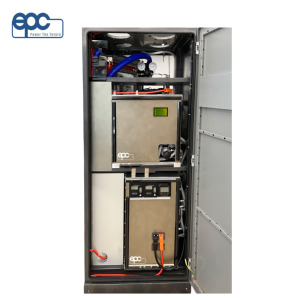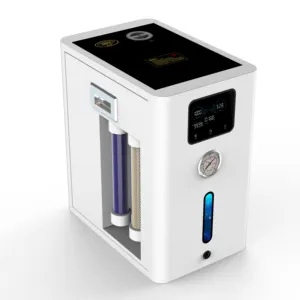Introduction to Hydrogen Energy and Fuel Cells
Hydrogen energy and fuel cells are emerging as vital components in the transition towards a more sustainable energy landscape. With the pressing need to reduce carbon emissions and reliance on fossil fuels, hydrogen is gaining recognition as a clean burning energy source. Fuel cells, which convert hydrogen and oxygen into electricity, water, and heat, provide a highly efficient and environmentally friendly option for powering a variety of applications, from vehicles to portable electronics.
Types of Hydrogen Energy and Fuel Cells
Understanding the various types of hydrogen energy and fuel cells is essential for harnessing their potential effectively. The most common classifications include:
- Proton Exchange Membrane Fuel Cells (PEMFCs): Known for their high efficiency and quick startup times, PEMFCs are widely used in transportation and portable applications.
- Solid Oxide Fuel Cells (SOFCs): These cells operate at high temperatures and are suitable for stationary power generation, offering high efficiency and diverse fuel types.
- Alkaline Fuel Cells (AFCs): Often used in space applications, AFCs are known for their simplicity and long operational life.
- Phosphoric Acid Fuel Cells (PAFCs): These are primarily used for large-scale commercial power generation and provide reliability in continuous operations.
Applications of Hydrogen Energy and Fuel Cells
Hydrogen energy and fuel cells are versatile and can be applied across various sectors, contributing significantly to decarbonization efforts. Notable applications include:
- Transportation: Buses, trucks, and passenger vehicles powered by hydrogen fuel cells help to reduce air pollution and reliance on petroleum.
- Stationary Power Generation: Hydrogen fuel cells can provide backup and primary power to hospitals, data centers, and commercial buildings.
- Portable Power Sources: Hydrogen fuel cells are being integrated into small electronic devices, offering longer run times compared to batteries.
- Industrial Applications: Hydrogen is also utilized in sectors such as refining, chemical production, and as a feedstock for fertilizers.
Advantages of Hydrogen Energy and Fuel Cells
The integration of hydrogen energy and fuel cells offers multiple advantages, reinforcing their role in a sustainable future. Key benefits include:
- Environmental Benefits: Hydrogen fuel cells emit only water vapor as a byproduct, significantly reducing greenhouse gas emissions compared to traditional energy sources.
- Energy Efficiency: Fuel cells convert chemical energy directly into electrical energy, achieving far higher efficiency than combustion-based systems.
- Fuel Flexibility: Hydrogen can be produced from various energy sources, including renewable resources such as solar, wind, and hydro, promoting energy independence.
- Scalability: Hydrogen fuel cell technology can be scaled for small applications, such as personal electronics, to large installations for cities and industries.


































































































































































































